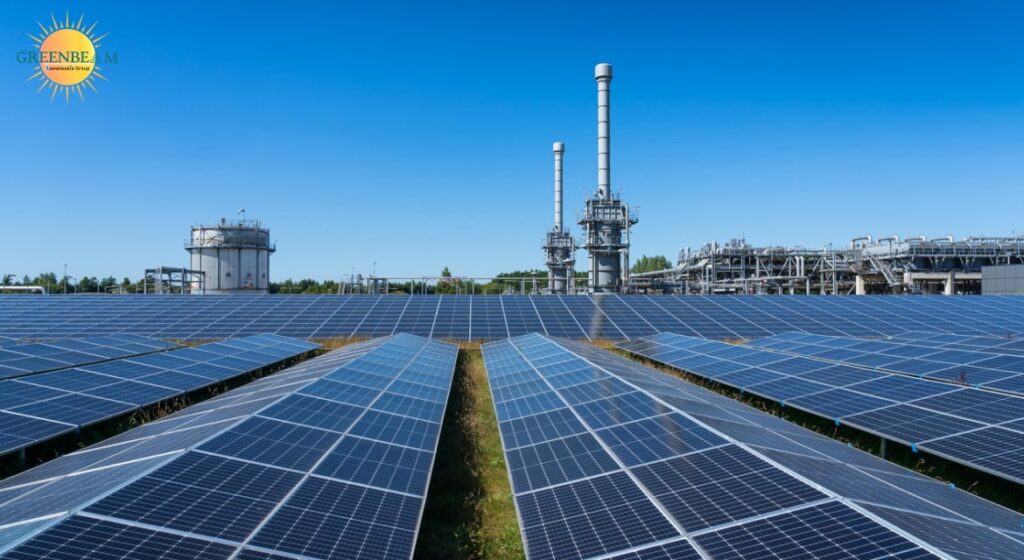Introduction to Solar Energy in the Commercial Sector

The Growing Importance of Sustainable Energy Solutions– Solar energy is at the forefront of the shift towards energy-saving solutions, driven by growing awareness of global warming from increased industrial activity and chemical emissions in recent years. Companies can reduce dependence on traditional energy sources by adopting solar energy and contribute to a greener and sustainable future. This helps achieve sustainable energy and saves energy, resulting in low-cost electricity.
The Economic Benefits of Solar Energy for Businesses
Cost Savings and Long-Term Financial Stability—Apart from sustainability and savings, this question always arises: How much can a commercial industry save? Well! There’s also a non-argumentative answer; it depends on the company’s usage, as the company scale differs. The commercial sector saves up to 50-70% on electricity bills, providing long-term cost stability.
Most solar panels on the market have an efficiency range between 15% and 22%. So, let’s say you have a panel with 20% efficiency. That means, in perfect conditions, it can convert 20% of the sunlight it receives into electricity. Reducing carbon emissions from this industry is equivalent to planting around 250 trees yearly or not driving 100000 miles in a vehicle.
Environmental Impact: Going Green with Solar Power


- Reducing Carbon Footprint and Emission
Solar energy can generate power with zero emissions, which can be used as it is known that solar energy emits carbon footprints. However, this emission is achieved by solar energy without burning fossil fuels, which makes it an eco-friendly alternative to conventional energy sources. This nourishes your energy demand, ideally replacing traditional energy needs with green energy.
- Corporate Social Responsibility and Environmental Stewardship
Installing solar panels in the commercial sectors helps society and the environment in many ways. Incorporating solar energy is a tangible way for businesses to reduce their carbon footprint and contribute to the increase in global warming. This generates clean energy without releasing harmful gases or pollution and mitigates the environmental impact of their operations. This is equivalent to planting 100s trees or not driving 10,000s miles of vehicles.
- Advancements in Solar Panels
Advancements in solar panels have revolutionised renewable energy, making solar power more efficient and accessible. Cutting-edge materials and manufacturing techniques have boosted panel efficiency, allowing them to convert more sunlight into electricity.
- Efficiency and Performance Improvements
Efficiency and performance improvements are key to modern solar panels. Innovations like bifacial panels, passivated Emitter, and Rear Cell (PERC) technology capture more sunlight and enhance energy output. These advancements make solar panels more reliable and productive. For commercial use, innovations have made solar technology more versatile. Flexible and lightweight panels can be integrated into various building surfaces. Solar tracking systems and Building-Integrated Photovoltaics (BIPV) offer new applications, while advanced energy storage solutions ensure a reliable power supply.
Case Studies: Successful Solar Implementations
Case studies of successful solar implementations highlight the transformative impact of solar energy on businesses. Real-world examples show the efficiency, cost savings, and sustainability achieved through commercial solar projects.
- Real-World Examples of Commercial Solar Projects
A leading tech company installed a large-scale solar array at its data centre, significantly reducing energy costs and aligning with sustainability goals. This ensured uninterrupted operations and boosted their green credentials. A major retail chain integrated solar panels across multiple store rooftops, resulting in substantial energy savings and reduced reliance on grid power. This initiative also enhanced their brand image among environmentally conscious consumers. A remote manufacturing plant implemented a solar energy system, reducing operational costs and achieving energy independence. The reliable solar power supply eliminated the need for expensive and polluting diesel generators, ensuring smooth production processes. These case studies demonstrate the financial savings, operational efficiency, and enhanced sustainability businesses can achieve by adopting solar energy.
- Lessons Learned and Best Practices
Successful solar implementations highlight key lessons and best practices. First, viewing solar energy as a long-term investment ensures sustained benefits and cost savings. Second, integrating solar power into broader sustainability goals maximizes impact. Engaging employees in the transition fosters a sustainability culture within the organization. Staying informed about advancements in solar technology and being open to upgrades enhances system efficiency and performance. Lastly, compliance with local regulations and securing incentives can reduce costs and streamline implementation.
Global Leaders in Commercial Solar Energy
- Countries Leading the Way in Solar Adoption
China, the United States, Germany, and Japan are the countries that use solar energy in the commercial sector for government support and manufacturing capacity. India has not been laid back in the commercial industry and various sectors, and it is rapidly expanding into solar energy usage. Although it’s challenging to have the exact figures for the usage of solar power, India is majorly considering energy and cost savings by adopting solar power.
The Future of Solar Energy in the Commercial Sector

- Emerging Trends and Predictions—Emerging trends include integrating solar energy with innovative grid technology, optimizing energy management, and reducing costs. Advances in energy storage, like solid-state batteries, will further improve the reliability and efficiency of solar power. Additionally, solar-powered transportation and the expansion of solar technology in developing regions are expected to play significant roles.
- The Path Towards a Sustainable Energy Future– To achieve a sustainable energy future, businesses should continue embracing solar technology, integrating it with other renewable sources, and staying ahead of technological advancements. By investing in solar energy, companies contribute to reducing carbon footprints, achieving energy independence, and promoting global sustainability. The ongoing evolution of solar technology will drive further adoption and impact the commercial sector.
How to Get Started with Solar Energy for Your Business
- Steps to Evaluate and Implement Solar Solutions:
Assess Energy Needs: Review your current energy consumption and future needs to determine the appropriate size of the solar system.
Evaluate Site Suitability: Check your location’s potential solar exposure, including roof space, orientation, and shading.
Calculate Costs and Savings: AnaAnalyzee installation cost, available incentives, and potential savings on energy bills.
Conduct a Feasibility Study: Get a professional assessment to ensure solar energy is viable for your business.
- Choosing the Right Solar Provider and Equipment

Research Providers: Look for reputable solar companies with experience in commercial installations and positive customer reviews.
Compare Equipment: Evaluate the efficiency, warranty, and performance of solar panels and inverters.
Get Multiple Quotes: Obtain and compare quotes from several providers to ensure competitive pricing and comprehensive service.
Check Credentials: Ensure the provider has the necessary licenses, certifications, and insurance for your project.
Conclusion: The Bright Future of Solar Energy in Business
Solar energy offers a promising future for businesses, providing significant benefits such as cost savings, energy independence, and environmental responsibility. By adopting solar power, companies can reduce their carbon footprint, lower energy expenses, and enhance their corporate image.
Embracing solar energy also opens up opportunities for innovation and long-term sustainability. Businesses are encouraged to use these benefits and invest in solar technology to secure a cleaner, more efficient, cost-effective energy future. The continued advancements in solar technology make now an ideal time for businesses to integrate solar power into their operations.






